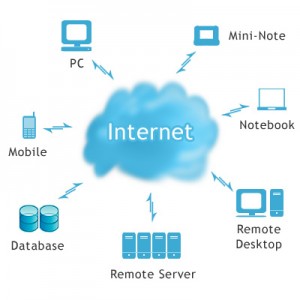The gears of cloud computing have been spinning quietly in the background of the tech world for years, but 2011 was a breakout year for the platform. After months of fanfare, Apple finally pulled the trigger on iCloud and delivered on its promise of tying iOS devices together efficiently and wirelessly. Amazon’s Kindle Fire made a splash last holiday season and became the flagship device to illustrate Amazon’s exhaustive cloud efforts, which encompass an entire stable of media that can be deleted and restored to the device at any time.
Google has unfurled more services that leverage their own cloud services, and even rolled out an impressive ad campaign for Chrome that sells the web as a cloud that facilitates the human experience.
Yes, cloud computing has entered the mainstream with some of the biggest technology corporations in the world, but one question lingers and it’s a question that has kept people from wholly embracing the cloud since its advent. Rackspace, who has been on the forefront of the cloud computing industry, has shown the magic of the technology and its uses.
Is it safe?
The Internet is an invisible wind that blows throughout each of our lives; recently it has become the answer to the first world’s need to access information on multiple devices across different locations. However, given the imminent threat to digital security systems, many feel that basing enormous systems storage on the cloud is akin to building a castle on the sand.
Now that the cloud has emerged from the tenebrous back-alleys of the tech world and into the shimmering world of corporate strategy, critics are pulling out megaphones to warn of the dangers of continuing down this path.
The European Union’s justice commissioner, Viviane Reding, voiced her concern about the cloud’s threat to global privacy in a November memo:
“Data protection is highly relevant for consumers and businesses regardless of borders. It therefore needs to be addressed at the European level, through high, common European standards with global appeal. The Lisbon Treaty provides Europe with a unique opportunity to modernise and strengthen data protection rules now. We both believe that as a result of this reform process, consumers in Europe should see their data strongly protected, regardless of the EU country they live in and regardless of the country in which companies, which process their personal data, are established.
We both believe that companies who direct their services to European consumers should be subject to EU data protection laws. Otherwise, they should not be able to do business on our internal market. This also applies to social networks with users in the EU. We have to make sure that they comply with EU law and that EU law is enforced, even if it is based in a third country and even if its data are stored in a ‘cloud’.
The Washington Post reports that Reding plans to put fines in place for companies that violate EU law regarding data protection.
This begs the question: who’s law holds sway over the Internet? The Internet has been subject to these types of questions since it became clear that it made almost anything possible. The recent SOPA and PIPA debate blazed over who had the power to shut down parts of the Internet. The battle over the cloud will challenge cloud providers and their investors in the private sectior to rethink how they can distribute products like google and Dropbox across the Atlantic. This will inevitably pave the way for expansion into Europe as well, provided tech leaders like China and Japan don’t devise their own services first.

